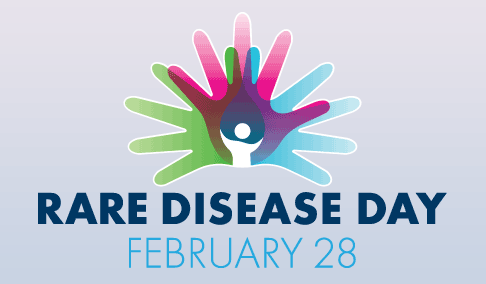
Sadly, this day doesn’t feature an eccentric character who brings us presents, nor does it con us into buying and eating a bunch of chocolate. (Full disclaimer: I will more than likely eat chocolate today, but that’s got nothing to do with the specific nature of the day.)
Instead, Rare Disease Day is a way for all of those people who are dealing with rare diseases--and yes, I do mean all of those people… millions of people across the globe are suffering from a rare disease--to stand up and make their presence known.
If you have never really paid attention to rare diseases, fret not. You’re (probably) not a terrible person. We just happen to live in an Orwellian-esque world where major diseases (and causes) spend fortunes to make us believe that they are the ones who truly need and deserve all of your attention and donations. Just make the cheque out to Eurasia and ignore the niggling voice in your head that’s thinking about all the other deserving causes out there.
However, this tunnel vision means that so many causes face an incredibly steep uphill battle. For some people, NO ONE is investigating their disease and there is therefore very little chance of a treatment being discovered. (Around 50% of rare diseases have no foundation supporting or researching their condition and 95% of rare diseases have no FDA approved treatment.)
Then, if you are lucky enough to have a team looking at your condition, they could be constantly at risk of shutting down because of lack of funding. FOP is (relatively) lucky in that we have a team of very dedicated doctors. Even so, every year we struggle to keep the whole team funded to ensure the research continues. When it comes to how these funds are amassed, most of the money raised to keep it all going comes from individual/family fundraisers. (Think of that the next time a major disease—I won’t name names but you know whom I’m referencing— cries about how they need your money to keep research going, even though they’re already getting billions of dollars from various government agencies and their marketing budget is larger than the entire budget allocated to most other diseases.)
And if by some miracle you get a drug, the costs involved in managing your treatment will be exponential (that is, if your government even allows you to access the drug).
Do you know what this means? If you have a rare disease, on top of dealing with a horrid disorder that is making your life much more trying, you have to deal with this added weight that comes from the simple fact that your life isn’t considered as worthy because your disease isn’t, well, popular. Now sit back and be quiet and let the cool diseases get all the attention.
So here’s my final message to anyone reading this: Do you sit at home, wondering how you can make a serious difference in this world? Look in your wallet (or look under your couch cushions), then donate what you find to a rare disease. That money will seriously help an underfunded condition and give a little bit of hope to people who desperately need it.
And in case you don’t feel like trusting a random person on the internet, here are some follow-up sites:
http://www.orpha.net/national/CA-EN/index/homepage/
http://www.rarediseasefoundation.org/
http://care4rare.ca/

 RSS Feed
RSS Feed
